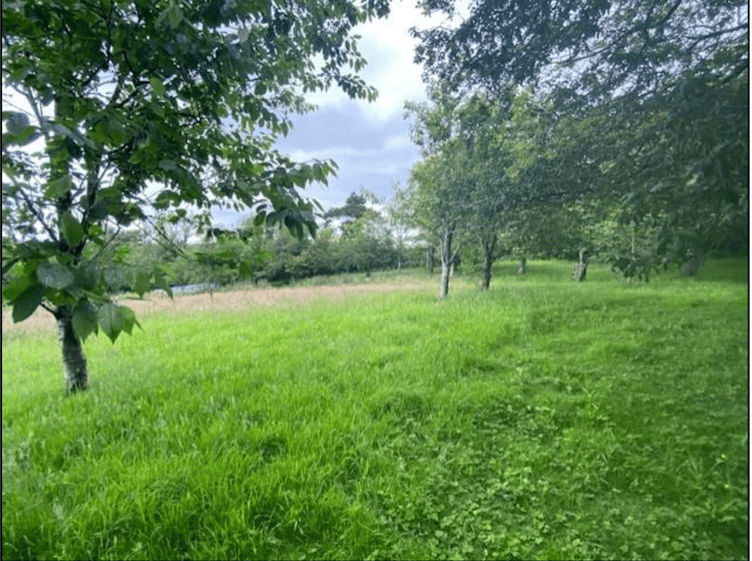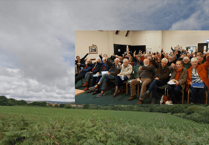EACH week, hundreds of planning applications come before Cornwall Council’s planning department, seeking to win approval for various plans right across the Duchy, with some concerning Holsworthy handled by Torridge District Council.
These plans can comprise of a number of different reasonings– ranging from permission to replace windows or listed building consent ranging up to large house building developments or changing of use of a building, for instance, from an office to a café, or flats.
Within this large and often complex system, there are a number of formats from which planning advice and approval can be sought.
These range from full applications where all the details which comprise a proposed development or work to a building are submitted, to outline applications, where further details are yet to be confirmed, for example, an outline application with reserved matters for appearance may not confirm the final proposed development but rather seek permission in principle.
An example of this is one for an outline permission for 20 dwellings on land with reserved matters for appearance and scale; the reserved matters would require further permission later for their inclusion.
Other types of applications include pre-application advice requests, where would-be developers submit often outline proposals to a local authority to ascertain whether it is likely to gain support or not prior to submitting a planning application.
The vast majority of applications are decided by planning officers employed by a local authority under ‘delegated powers’, meaning they do so on behalf of their employer, however, some applications are ‘called in’ by local councillors to be discussed at an area’s strategic planning committee meeting, meaning the final decision rests with a committee of councillors.
Holiday pods refused
PA23/06780: PROPOSALS for a ‘small scale’ holiday accommodation provision on land near Camelford has been refused by Cornwall Council amid concerns over traffic and the River Camel.
Mr J Watts applied to the local authority for permission to install four ‘pod’ type installations on land to the west of Glen Mead, Helstone, Camelford.
In an accompanying planning statement, the planning agents for Mr Watts, gave some details to Cornwall Council as to the vision for the now-refused proposal. They told the authority’s planners: “This application seeks consent for small scale holiday accommodation, specifically the siting of four self-contained pods. The site is positioned within Helstone, with good connectivity to Camelford via the A39, and would provide a form of accommodation that is not currently provided for within the settlement or surrounding area.
“Recent years has seen an increased demand for self-catering accommodation such as that proposed, with a preference for smaller sites where privacy and tranquillity can be enjoyed.
“The Applicants are committed to providing a well-managed, unique holiday experience within Helstone, where they have lived for a number of years, and where there is currently no similar provision.
“The Applicants would be able to manage and monitor the site on a 24-hour basis due to the proximity of their home from the site.
“While the site is conveniently located on the A39, the Applicants are keen to encourage the use of sustainable forms of transport by all guests, with accommodation promoted to cyclists, and a range of transport options provided to all guests when enquiries are made.
As well as promoting the range of nearby services, facilities and attractions, all guests and future guests would be provided with a full schedule of public transport options including links to trains, coaches, and buses, so that they can choose an alternative mode of transport to the site than private motor vehicles, either when travelling to the site or for use when at the site.”
However, their desire to promote sustainable forms of transport did not convince Cornwall Council who cited an ‘increase in car journeys’ as one of the reasons for rejecting the proposals for the pods.
In response to Mr Watts, a planning officer for the authority, in refusing the application said: “The proposed development of the site for four pods to be used for holiday letting purposes by reason of the location of the site in the open countryside, divorced from nearby services, facilities and amenities would perpetuate over reliance on the private vehicle and unsustainable traffic movements.
“In the absence of any special circumstances to justify development in this rural location, the proposal is not sustainable development and is considered to be harmful to the character of the countryside and conflicts with the spatial strategy pursued by the Council for the location of new development.
“The development is therefore contrary to Policies 1, 2,3, 5, 12 and 23 of the Cornwall Local Plan Strategic Policies 2010- 2030, policies T1 and C1 of the Cornwall Council Climate Emergency DPD and paragraphs 88, 96, 108, 116 and 186 of the National Planning Policy Framework 2023.”
They further cited concerns about phosphates in the River Camel, adding: “The application site is within the hydrological catchment of the River Camel which is designated as a Special Area of Conservation under the Habitat Regulations 2017.
The designated site is considered to be in unfavourable condition due to high levels of phosphates. Insufficient details of a mitigation package have been submitted to demonstrate that this proposal would not result in an increase in phosphate levels. Given the failure of the proposal to provide any suitable mitigation, and until demonstrated otherwise, the precautionary principle must prevail in favour of nature conservation.
“The development is contrary to the Conservation of Habitats and Species Regulations 2017, para 186 (a) of the NPPF 2023 which states that planning permission should be refused if significant harm to biodiversity cannot be avoided, or as a last resort, compensated for and policies 1, 22 and 23 of the Cornwall Local Plan Strategic Policies 2010-2030.”

Offices to become bungalow
PA24/00175: A CHANGE of use application to change a bungalow used as a training annexe to offices in Bodmin into a one-bedroom dwelling has been approved by Cornwall Council.
Mr K Welch applied to the local authority seeking permission to change the use of the building known as ‘Priory Bungalow’ on Priory Road from its current use as offices to a residential dwelling.
As part of his application, he submitted evidence that he had received little demand for use of the building in its current form, having been on the market since March 2023. Letting agents The Property Shop, in a letter to Mr Welch said there had been ‘little or no interest’ in the property, advertised for commercial use at a rent of £850 per month.
In light of this, he wished to change it to a residential dwelling, creating a one-bedroom bungalow with a shower room and study. No external works were required for the building, which was domestic in its appearance.
One public comment was received in support, from Mr Peter Martin, town clerk on behalf of Bodmin Town Council’s planning committee who supported the application.
Cornwall Council approved the application, stipulating an additional condition to its use along with the standard conditions stating the approved works were completed within three years and according to the approved plans.
This condition read: “Prior to the first use of the dwelling hereby approved, a scheme for the incorporation of one bat boxes or bird boxes or bee brick at a minimum rate of one measure per dwelling shall be submitted to and approved in writing by the Local Planning Authority. Such details shall include the location and specific details of each feature. The approved features shall be installed prior to the occupation of the dwelling to which they relate and shall thereafter be retained and maintained as such.
“Reason: To accord with policy G1-10 of the Climate Emergency Development Plan Document and policies 1, 2 and 23 of the Cornwall Local Plan Strategic Policies 2020- 2030 and paragraphs 8 and 180 of the National Planning Policy Framework 2023.”





Comments
This article has no comments yet. Be the first to leave a comment.